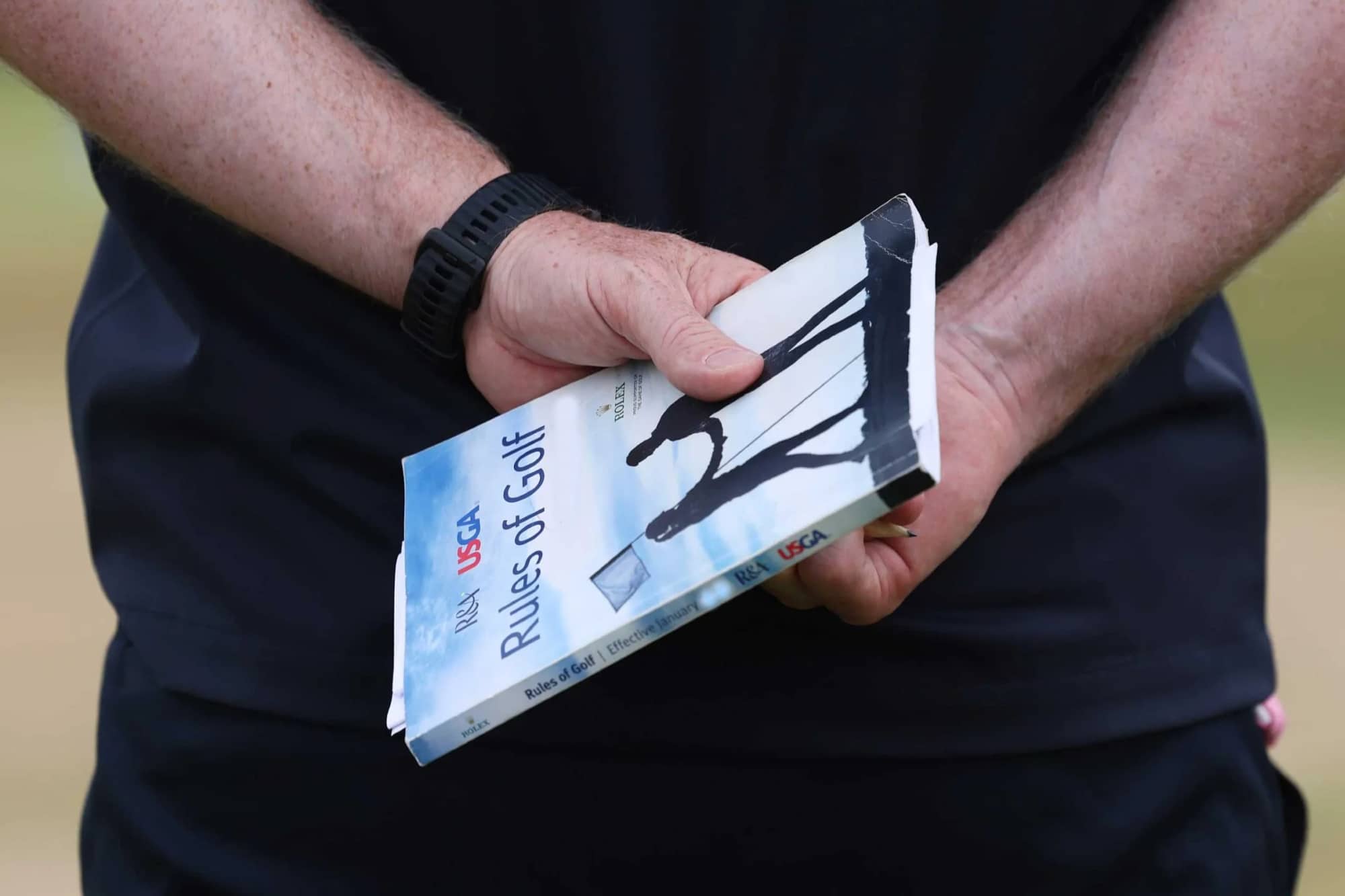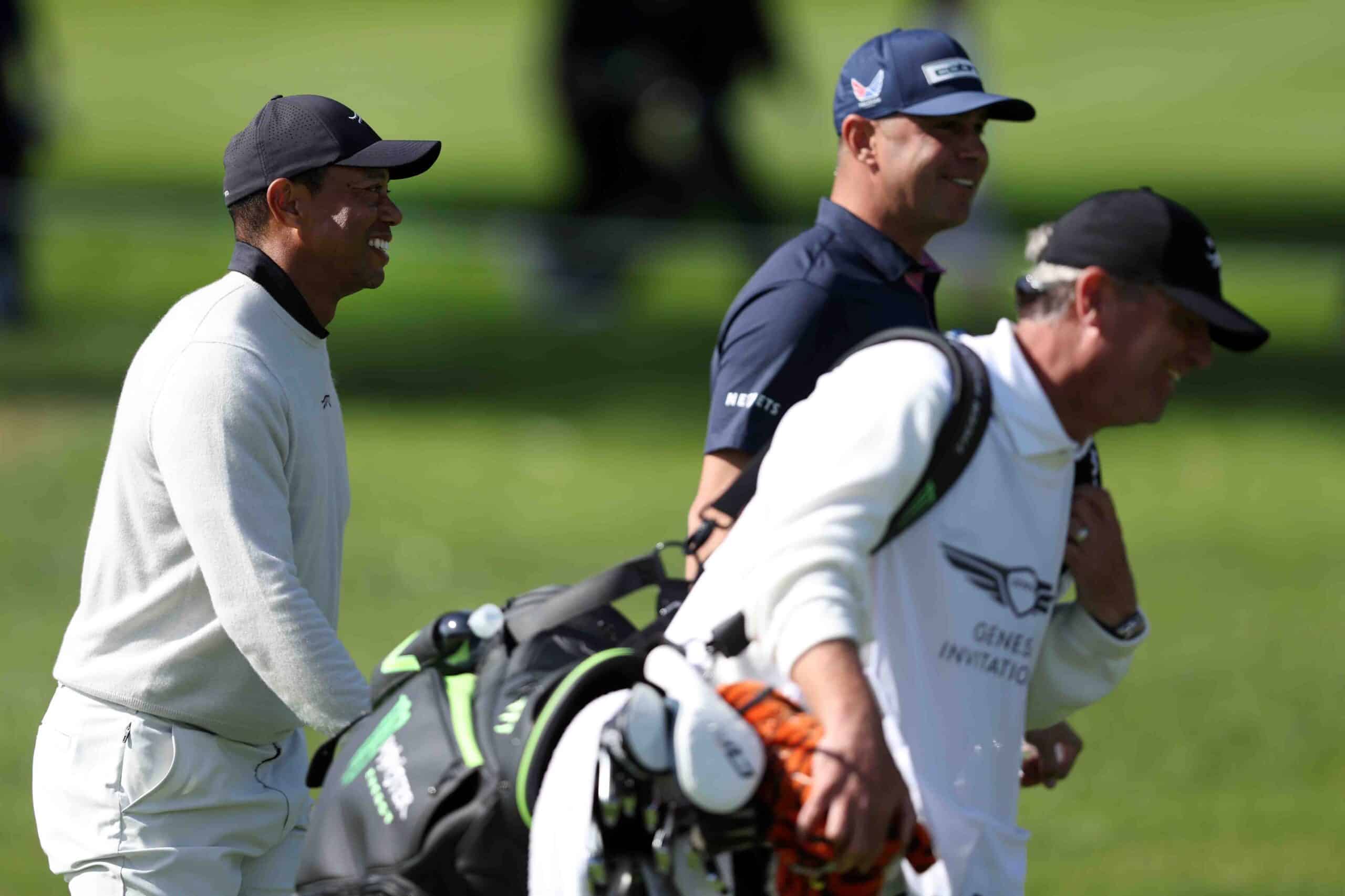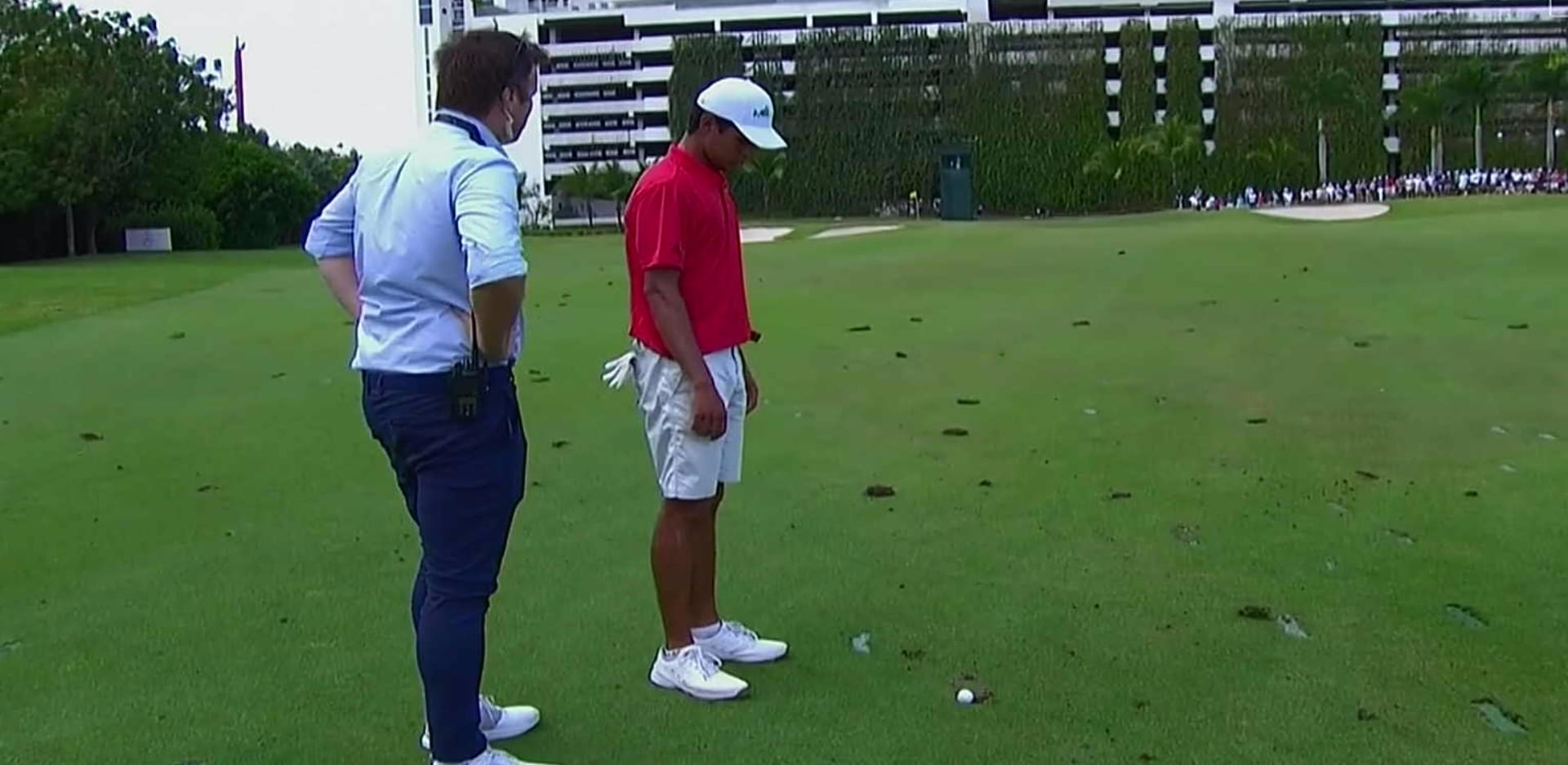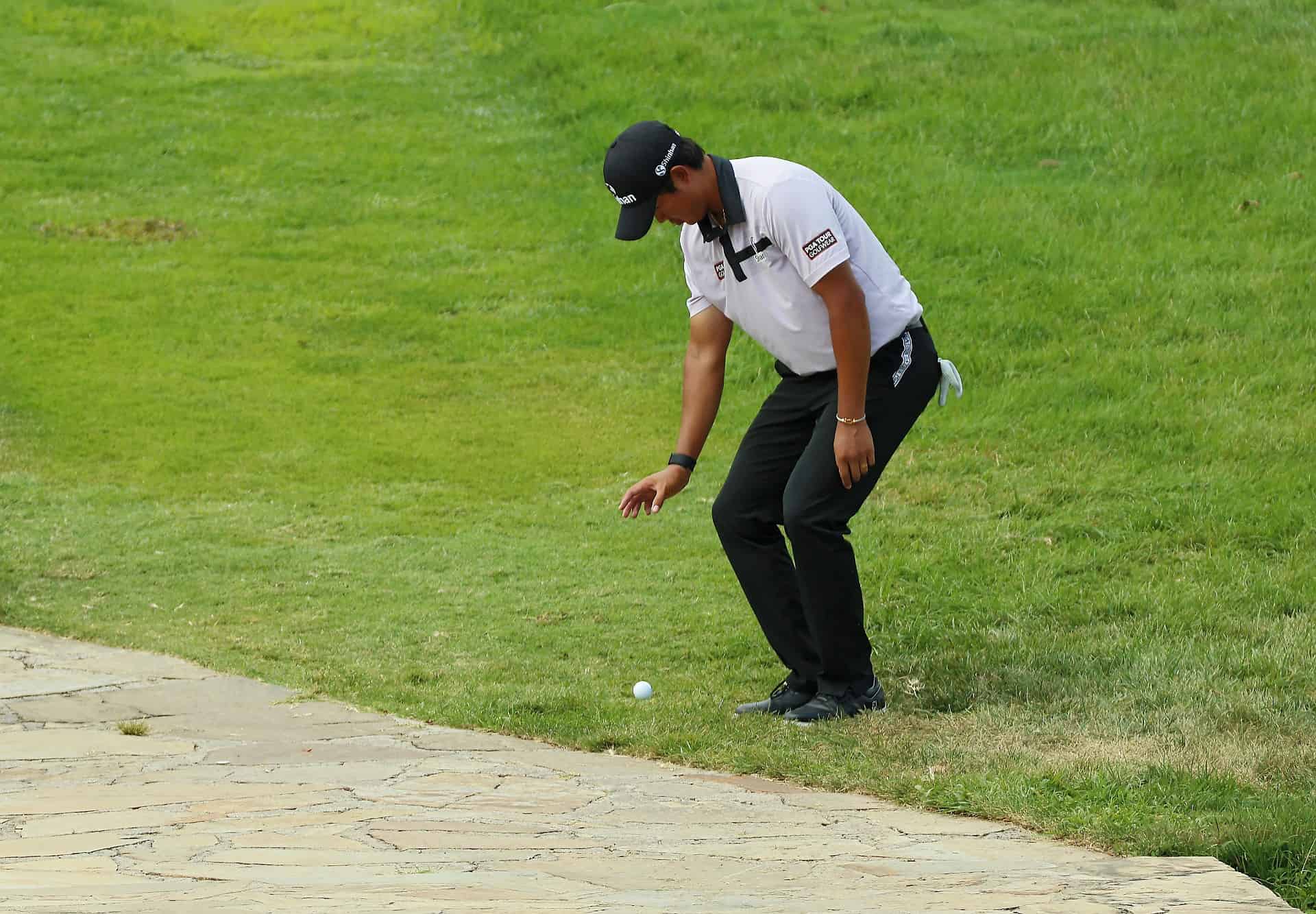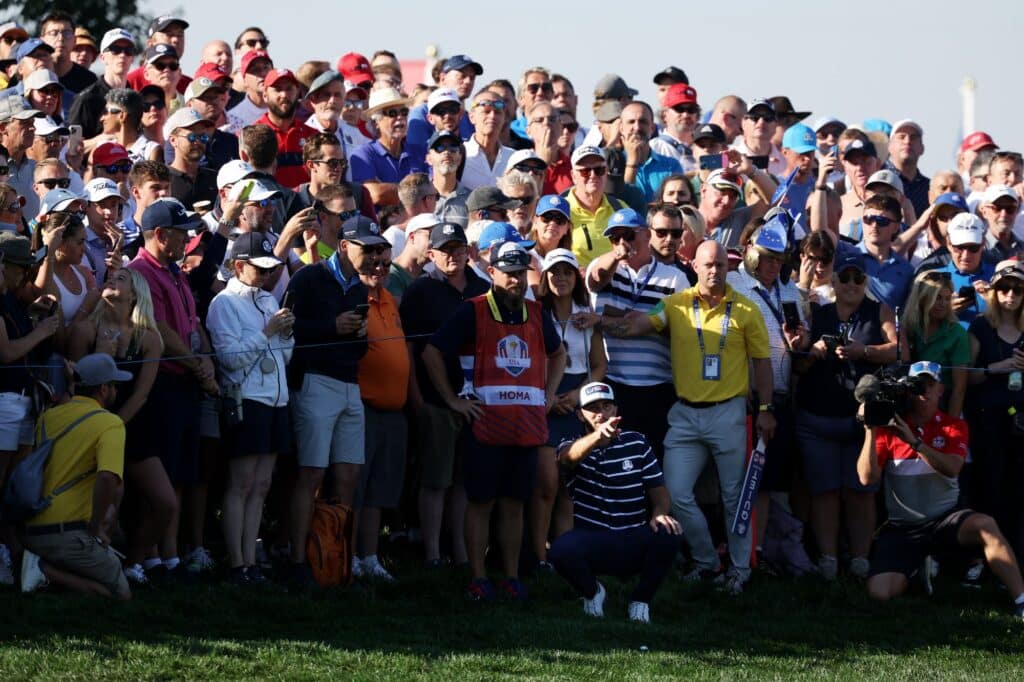
Do I need to actually mark out my relief area?
You’ll see the pros sticking tees in the ground before they drop their ball. But is it necessary? Our rules expert has you covered
This week’s column is inspired by an email from Douglas Thomson and something he saw at the recent Ryder Cup.
“Max Homa decided to take a penalty drop as he deemed his ball was unplayable at the 18th hole. What happened next has me very confused,” he wrote.
“An area was agreed with the referee where Max would drop his ball to hit his next shot. Max didn’t mark the spot where he was taking his drop. The referee instead had marked the spot.
“Once Max had played his shot he bent down and gave the referee his tee back to him. I thought it was the player’s responsibility to mark his intended dropping area and Max in this case should have been penalised and lost the hole. What is your opinion on this?”
Relief area golf rule: Do I need to physically mark out a relief area?
We can go down some rabbit holes about referees and rulings – ultimately if a rules official allows you to do something you’ll never be in trouble even if the ref’s decision later turns out to be wrong – but at the heart of Douglas’s query is how the area was marked.
If you check out Rule 14.3b, it says a ball must be dropped in the right way and must be dropped in the relief area – or on the line if you’re taking back on-the-line relief.
You all know that relief areas are measured using club lengths, one or two depending on the nature of what you’re taking.
A club length is set out in the definitions as the length of the longest club in your bag – other than a putter.
You measure the specific relief area from a reference point. But, again, you all knew this already.
Here’s what you might not know. Read the definition of club length, read the definition of relief area, and then read golf rule 14.3 on dropping a ball in a relief area.
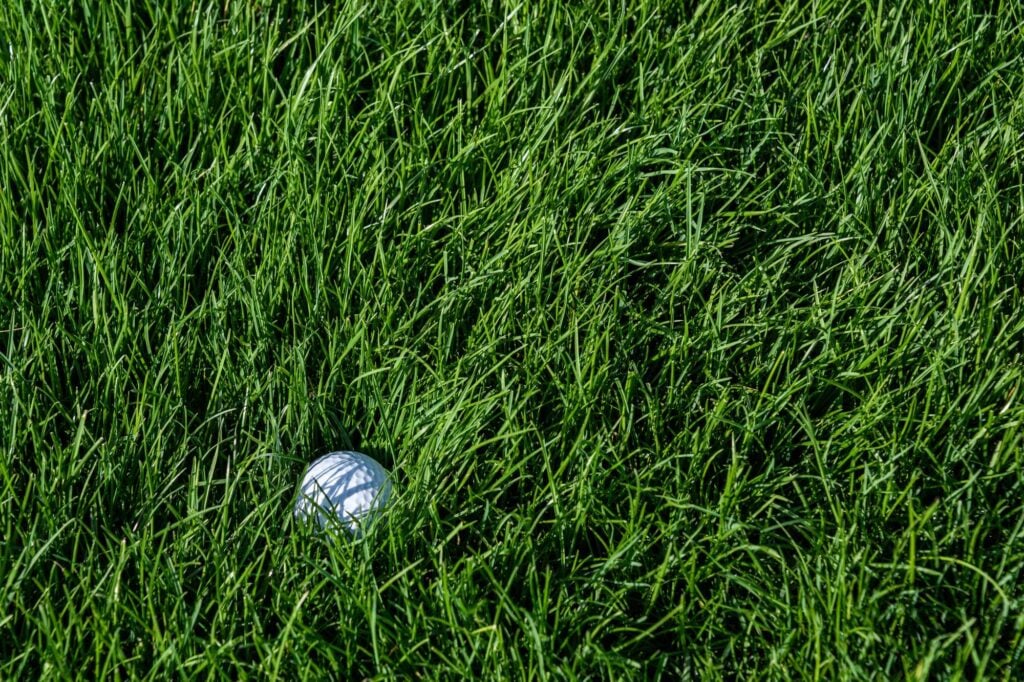
See if you can find any mention of using tee pegs, or anything else for that matter, to mark that relief area. You’ll be searching for a while.
There is no requirement for you to mark out your relief area in any way. You can, of course, use tee pegs. You could use a club. You won’t even be penalised if the ball touches that equipment after it hits the ground as long as it stays within the relief area (though you will if you’ve used the club to deliberately deflect or stop a ball in motion).
You can measure it out visually if you want. Yes, by just using your eyes. The choice really is yours.
Now, would I recommend you mark out the relief area using tee pegs, or some other such vehicle? Absolutely. It wards off complications.
Say you decide to use a visual method, hit a shot, and then get challenged by a playing partner who says the ball had landed outside of the relief area.
Well, now you’ve got a problem and golf is complicated enough without adding more drama.
But, do you HAVE to physically mark out that relief area? No.
Now have your say
Did you know about this rule and what do you think about it? Let me know by leaving a comment on X.
Steve Carroll

A journalist for 25 years, Steve has been immersed in club golf for almost as long. A former club captain, he has passed the Level 3 Rules of Golf exam with distinction having attended the R&A's prestigious Tournament Administrators and Referees Seminar.
Steve has officiated at a host of high-profile tournaments, including Open Regional Qualifying, PGA Fourball Championship, English Men's Senior Amateur, and the North of England Amateur Championship. In 2023, he made his international debut as part of the team that refereed England vs Switzerland U16 girls.
A part of NCG's Top 100s panel, Steve has a particular love of links golf and is frantically trying to restore his single-figure handicap. He currently floats at around 11.
Steve plays at Close House, in Newcastle, and York GC, where he is a member of the club's matches and competitions committee and referees the annual 36-hole scratch York Rose Bowl.
Having studied history at Newcastle University, he became a journalist having passed his NTCJ exams at Darlington College of Technology.
What's in Steve's bag: TaylorMade Stealth 2 driver, 3-wood, and hybrids; TaylorMade Stealth 2 irons; TaylorMade Hi-Toe, Ping ChipR, Sik Putter.


